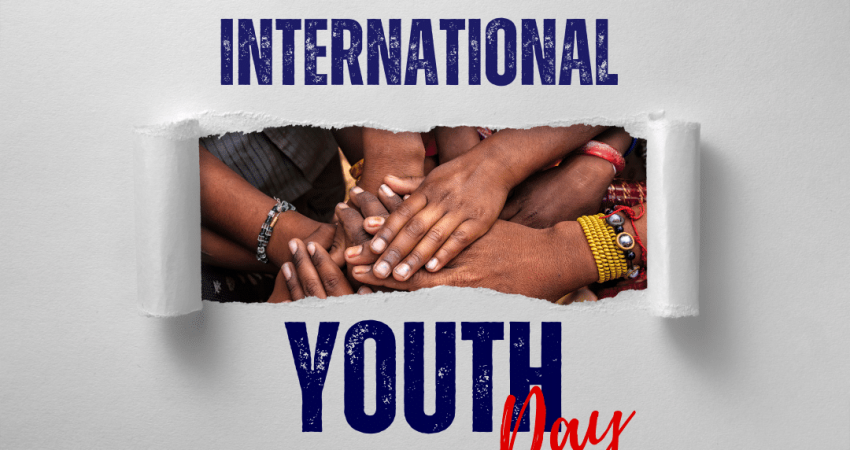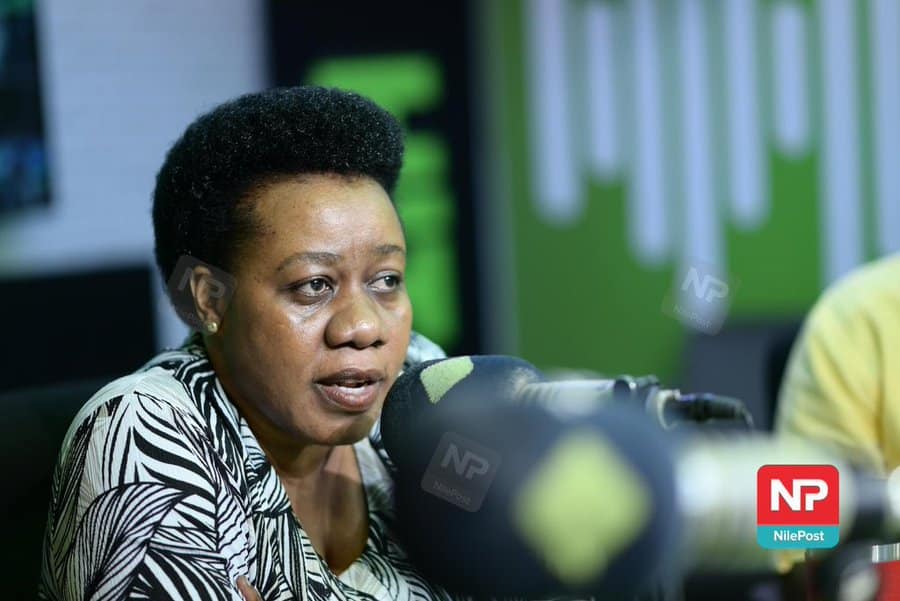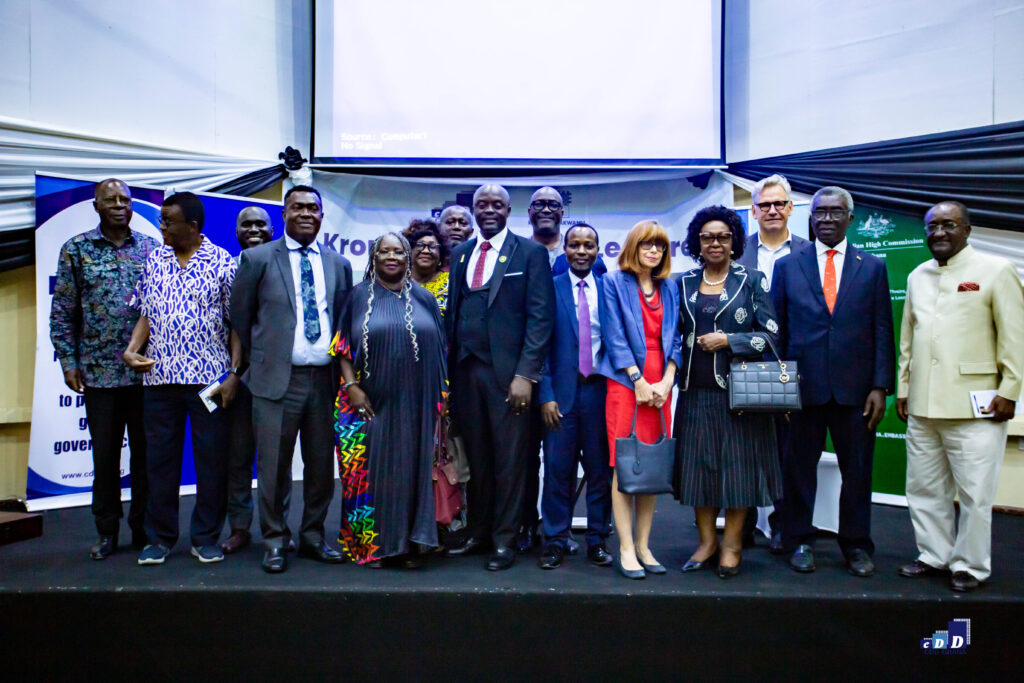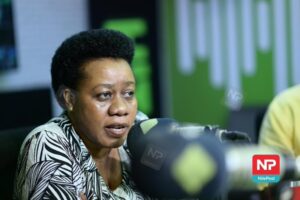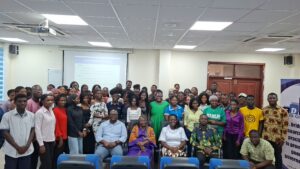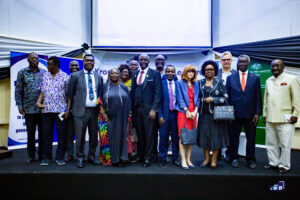Today is International Youth Day. On this day, the world focuses attention on its youth – their hopes, and aspirations but also the many political, social, and economic challenges they face. It is a day where we renew our commitments and assure them of a brighter future. But it is also a day where the youth must renew their own commitments to themselves and society at large.
The theme for this year’s celebration is “From Clicks to Progress: Youth Digital Pathways for Sustainable Development.” The focus is on how the youth, globally, are drawing on technology tools to help address some of the world’s most pressing challenges. I adopt the theme and as a matter of sustainable development draw the youth of Ghana’s attention to Ghana’s democracy.
I take this opportunity to draw their attention to the democracy hopes they once expressed and challenge them to work towards attaining it.
The Youth’s Changing Sentiments About Ghana’s Democracy
In the maiden edition of the Afrobarometer survey (1999), Ghana’s transition to multiparty democracy was six years old. In response to several questions, the youth expressed many positive sentiments. Here are a few examples of that optimism – a) 80% described the change from military to multiparty democracy as good or very good; b) 78% strongly supported the statement that the president should obey the constitution; c) 74% preferred democracy to any other form of government; d) 70% felt their power as voters could be used to choose leaders who will help improve lives; and e) only 19%, on a preference scale (0-10) gave a score of between six and ten (6-10) when asked how much they liked “the former system of military rule under the PNDC.”
These positive sentiments were reinforced during Round 5 (2012) of the survey. On a scale between 0 (completely undemocratic) and 10 (completely democratic), here are the percentages of the youth who scored the country at least six out of ten points along the following dimensions – a) 59% (democratic compared to ten years ago); b) 66% (presently democratic); and c) 95% (democratic in the future). Preference for democracy grew significantly to 83% compared to 1999 and satisfaction with democracy also improved from 59% (Round 1, 1999) to 74% (Round 5, 2012).
By the most recent round (2022) though, the positive sentiments among the youth had declined. Only 21% felt the country was somewhat/much more democratic compared to five years prior (2017). And when asked about the level of democracy in five years (2027), only 29% felt the country was going to be somewhat/much more democratic. Satisfaction with democracy declined to fifty percent (50%) compared to where it stood among the youth in 2012. And from only 13% who felt positively about military rule in 1999, there was a significant increase to 29% in 2022.
A Challenge to The Youth
This trend must be reversed so our democracy can address the youth’s most pressing political, social, and economic challenges. Our governments have an obligation to the youth. However, the youth must be active participants in our democracy if it is to meet their hopes and aspirations. As the youth celebrate the day, here are my five challenges to them.
Challenge 1 – Protect Ghana’s democratic peace and stability. It is alarming to see that the percentage of youth who approve of military rule has doubled between the first Afrobarometer (1999) and the most recent (2022). The youth’s growing dissatisfaction with how our democracy is working is understandable. However, a softening of their posture towards nondemocratic alternatives is not the appropriate response. They have an obligation to protect Ghana’s democracy and stability by pledging to it, an unwavering commitment to ensure it becomes one that meets their democratic hopes and aspirations. Keep in mind that Ghana is no stranger to nondemocratic forms of government and their consequences for political, social, and economic development.
Challenge 2 – Hold on to your faith in democracy. As you strive to protect Ghana’s democratic peace and stability, endeavor to hold on to your faith in democracy. Amidst the downward slide and growing dissatisfaction with the way democracy is working, there is a modicum of hope among the youth – a) 76% say democracy is preferable to any other form of government, and b) 84% support the use of elections to choose our leaders. More importantly, even among those who express dissatisfaction with the way democracy is working, seven out of ten (72%) still express preference for democracy (Afrobarometer Round 9, 2022). These are hopeful signals that can serve as a springboard for the youth to get the democracy they want.
Challenge 3 – Improve your civic habits. The self-described civic habits of the youth in the most recent Afrobarometer (2022) are not encouraging – a) 27% join others to raise issues; b) 30% attend community meetings; c) 31% contact their assembly man or woman; d) 13% contact their Member of Parliament; and e) 25% contact their traditional leaders. The last time interest in politics was asked as part of Afrobarometer (Round 6, 2014) only 32% said they were “very interested.” Democracies do not sustain themselves. They require active and engaged citizens. A vibrant civic culture enables citizens to stay informed as well as find ways to communicate with their elected and non-elected public officers. It also enables public office holders to be responsive to the needs of citizens. Active citizenship ultimately ensures accountable governance. To get the democracy they hope for and want, an improvement in their civic habits is very critical.
Challenge 4 – Eschew partisan politics. In Afrobarometer Round 1, 1999 sixty-seven percent (67%) described themselves as partisan (feeling close to a political party). In Round 9, 2022, that dropped significantly to forty-eight percent (48%). Political parties play a very important role in democracies and the youth are not opposed to political parties. In Afrobarometer Round 9, 2022, as many as eight out of ten (75%), expressed support for many political parties. The challenge to the youth here is to avoid the sharpened partisanship and polarization which currently characterizes our politics. To get the democracy they hope for, and which will solve their most pressing needs, they must eschew partisan politics. The national interest must always supersede partisan interest regardless of the perverse incentives the latter offers.
Challenge 5 – Leverage technology positively. The theme for this year’s celebrations looks at the many ways in which the youth are using technology to address their most pressing needs. The tools of technology can be leveraged positively. For example, it allows for easy mobilization and collective action in furtherance of civic engagement activities which the youth need to improve. But in leveraging technology, the pitfalls must be avoided. In our public spaces today, technology is making misinformation and disinformation very easy. Use technology to address your most pressing needs, but do not use it to undermine democracy.
Happy International Youth Day!
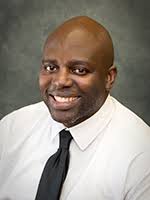 Prof. John Osae-Kwapong is a Democracy and Development (D&D) Fellow at the Ghana Center for Democratic Development (CDD-Ghana) and the Project Director at The Democracy Project.
Prof. John Osae-Kwapong is a Democracy and Development (D&D) Fellow at the Ghana Center for Democratic Development (CDD-Ghana) and the Project Director at The Democracy Project.


